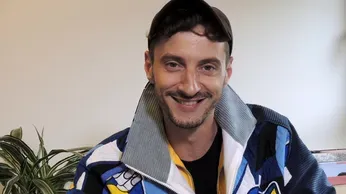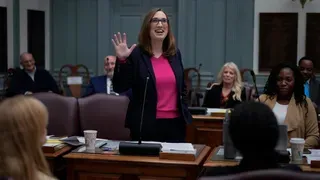
September 6, 2024
The Director of the Paralympic Closing Ceremony Wants to Turn the Stade de France into a Dance Floor
Tom Nouvian READ TIME: 3 MIN.
The final act of the Paralympics in Paris will be a giant dance party.
That's a promise from Thomas Jolly, the artistic director of the opening and closing ceremonies for this year's Olympics and Paralympics.
Jolly says 24 DJs will perform thumping techno and dance music at the Stade de France on Sunday as the curtain falls on the 2024 Paralympics.
"We want to turn the Stade de France into the biggest dance floor to celebrate the end of the Paralympics," Jolly told The Associated Press in an interview.
Much like during the Paralympic opening ceremony, which featured artists with disabilities and dancers using crutches or wheelchairs, the dance floor will be open for all.
"There will be choreographic sequences that will showcase the body," Jolly said.
The closing ceremony marks the end of Paris' Olympic and Paralympic journey. For Jolly, a 42-year-old theater director, it's the final chapter of a busy summer.
Jolly directed the July 26 opening ceremony of the Paris Olympics on the Seine River, which was widely praised but also met some criticism.
Some viewers thought a scene featuring French singer Philippe Katrine disguised as Bacchus, the deity of wine and celebration in the ancient Roman mythology, was a depiction of "The Last Supper," a famous painting by Leonardo Da Vinci that represents Jesus Christ's last meal with his apostles. Critics considered that a mockery of the Catholic Church. Paris 2024 organizers said they were "sorry" if people took offense.
Though Jolly said his intention was not to mock religion, he and his family faced harassment on social media, including death threats and attacks based on his sexual orientation and wrongly assumed Israeli roots, prompting French authorities to open a hate speech investigation.
"I've been doing shows for 20 years, and I've had critics on all my theatrical productions," Jolly said. "Criticism can please, it can hurt. That's the job. But the attacks, the threats, the insults ... that's a different matter."
Jolly, who received support from French political leaders including President Emmanuel Macron and Paris Mayor Anne Hidalgo, said the controversy did not lead to any changes to the ceremonies that followed.
"Absolutely not," he said. "Nothing was changed, and nothing should have been changed."
He noted that all scenes were approved months in advance by the French government, the city of Paris and the International Olympic Committee.
A native of Rouen, Jolly moved to Paris to prepare for the Games, dedicating two and a half years to creating the ceremonies. Much of the preparation for the previous ceremonies took place at night or in remote locations, in an effort to maintain a degree of secrecy.
Preparations for Sunday's closing ceremony are no different. With the Stade de France hosting Paralympic athletics competitions during the day, many of the rehearsals take place at night.
"I fully dedicated myself to the job," Jolly said. "I did not celebrate anything yet, I did not party, I did not even had time to rewatch the ceremonies on TV."
Jolly said he's considering writing a book about his Olympic experience before returning to his roots in theater.
"I don't think I'll ever have an audience like that (of the Olympic opening ceremony) again in my life," he said. "But it doesn't matter. There are also important things that can happen in a 50-seat theater."







